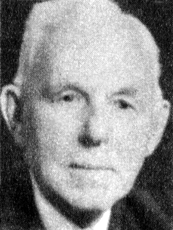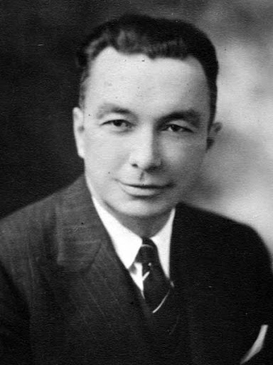The Progressive Party of Canada, formally the National Progressive Party, was a federal-level political party in Canada in the 1920s until 1930. It was linked with the provincial United Farmers parties in several provinces, and it spawned the Progressive Party of Saskatchewan, and the Progressive Party of Manitoba, which formed the government of that province. The Progressive Party was part of the farmers' political movement that included federal and provincial Progressive and United Farmers' parties.
There have been various groups in Canada that have nominated candidates under the label Labour Party or Independent Labour Party, or other variations from the 1870s until the 1960s. These were usually local or provincial groups using the Labour Party or Independent Labour Party name, backed by local labour councils made up of many union locals in a particular city, or individual trade unions. There was an attempt to create a national Canadian Labour Party in the late 1910s and in the 1920s, but these were only partly successful.

John Bracken was a Canadian agronomist and politician who was the 11th and longest-serving premier of Manitoba (1922–1943) and later the leader of the Progressive Conservative Party of Canada (1942–1948).
Liberal-Progressive was a label used by a number of candidates in Canadian elections between 1925 and 1953. In federal and Ontario politics there was no Liberal-Progressive Party, as such. The term generally referred to candidates endorsed by Liberal and Progressive constituency associations or to individual candidates who claimed the label, sometimes running against a straight Liberal or straight Progressive candidate. In Manitoba, a party existed with this name provincially, and Liberal-Progressives ran federally in Manitoba under the leadership of Robert Forke, with the support of the Liberal Party.

The Manitoba Liberal Party is a political party in Manitoba, Canada. Its roots can be traced to the late 19th century, following the province's creation in 1870.
The Progressive Conservative Party of Manitoba is a centre-right political party in Manitoba, Canada. It is currently the opposition party in the Legislative Assembly of Manitoba, following a defeat in the 2023 provincial election.
Richard Gardiner Willis was a politician in Manitoba, Canada. He was the leader of the Manitoba Conservative Party from 1919 to 1922, and served in the Legislative Assembly of Manitoba from 1922 until his death.

John Thomas Haig, was a politician in Manitoba, Canada. He served as parliamentary leader of the Manitoba Conservative Party in 1921–22.

Hugh Amos Robson was a politician and judge in Manitoba. He briefly served as leader of the Manitoba Liberal Party in the 1920s.
Murdoch Mackay was a Manitoba politician. He led the Manitoba Liberal Party from 1931 to 1932, and brought the party into an alliance with John Bracken's Progressives.

William Robson was a Manitoba politician and the leader of the province's Independent-Farmers party in 1921 and 1922.

Errick French Willis was a politician in Manitoba, Canada. He served as leader of the province's Conservative Party between 1936 and 1954, and was responsible for beginning and ending the party's alliance with the Liberal-Progressive Party. He also served as Manitoba's 15th Lieutenant Governor between 1960 and 1965.
Mervin C. Tweed is a retired politician in Manitoba, Canada. He represented Brandon—Souris in the House of Commons of Canada from 2004 to August 31, 2013. Prior to that he was a member of the Legislative Assembly of Manitoba from 1995 to 2004, representing the constituency of Turtle Mountain. He was the president of Omnitrax, the American rail company responsible for the Churchill rail line.
Gilbert Harrison Grant was a politician in Manitoba, Canada. He served in the Legislative Assembly of Manitoba from 1945 to 1949 as a Liberal-Progressive.
Ewan Alexander McPherson was a politician in Manitoba, Canada. He served in the House of Commons of Canada from 1926 to 1930. He was also a member of the Legislative Assembly of Manitoba from 1914 to 1920 and from 1932 to 1936, and served as a cabinet minister in the government of John Bracken.
The 1927 Manitoba general election was held on 28 June 1927 to elect Members of the Legislative Assembly of the Province of Manitoba, Canada. The result was a second consecutive victory for Manitoba farmers, following its 1922 win.
John Williams was a politician in Manitoba, Canada. He served in the Legislative Assembly of Manitoba from 1907 to 1910, and again from 1914 to 1922. Williams was a member of the Manitoba Liberal Party, and briefly served as a cabinet minister in the government of Tobias Norris.
George William McDonald was a politician in Manitoba, Canada. He served in the Legislative Assembly of Manitoba from 1915 to 1922 as a member of the Manitoba Liberal Party, and later sat in the House of Commons of Canada from 1935 to 1940 as a Liberal-Progressive.

Tobias Crawford Norris was a Canadian politician who served as the tenth premier of Manitoba from 1915 to 1922. Norris was a member of the Liberal Party.







